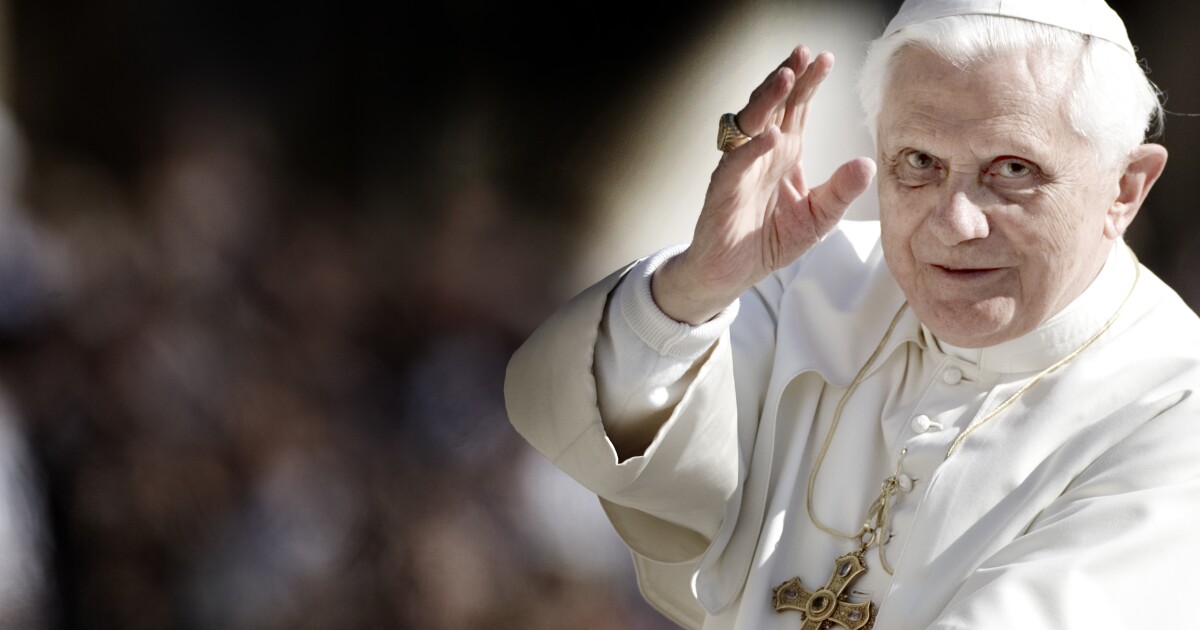

Journalism, which often describes itself as “the first rough draft of history,” had a rough time with Pope Emeritus Benedict XVI, who died on New Year’s Eve at age 95.
It was easy enough to feature the two best-known features of his long life and priestly tenure in the Roman Catholic Church: Born and raised in Bavaria, the onetime Cardinal Joseph Ratzinger was the first German pontiff since 1057 and the first pope to resign in five centuries. The first of these factoids was interesting in its own way but hardly surprising: Catholics are a minority in Germany, the birthplace of the Reformation. The second was controversial at the time but was probably inevitable, given increasing human longevity and the physical and mental demands of the position. Elected pope at the age of 78, Benedict was in his 86th year when, citing ill health and increasing fragility, he stepped down.
The real challenge for many journalists, in their binary worldview, involved passing judgment. A consensus soon formed: Ratzinger was a doctrinal conservative who, as the head of the Vatican’s Congregation for the Propagation of the Faith starting in 1981 until his own elevation to the papacy, served as the enforcer of Catholic orthodoxy and the scourge of dissenters among priests and laity for his smiling, charismatic benefactor, Pope John Paul II.
His German nationality didn’t help: He was inevitably recalled as “God’s Rottweiler” and the “Panzer Pope” and, as a comparatively reticent scholar-churchman who sought to steer a middle path on many secular issues, had the misfortune to fall between his predecessor, a Polish-born hero of the Cold War, and his successor, the voluble Argentinian Pope Francis. Benedict’s eight-year tenure as pontiff was, at best, “transitional.”
The truth, of course, is considerably more complicated. To begin with, Benedict was the rare pope in modern times whose route to renown and influence was paved not by administrative acumen or Vatican politics but by an acknowledged mastery of theology and ethics and a rare ability to express himself in accessible, even eloquent and generous, terms. He had a lifelong interest in what would now be called the intersection of faith and reason and a fascination with the synthesis of the Hellenic and Hebraic traditions in Christianity.
Born in 1927, Ratzinger was the studious son of a pious, small-town policeman whose career had been blighted by the rise of the Nazis, and he aspired to the priesthood from an early age. Like all able-bodied German boys, he was obliged to enroll in the Hitler Youth, where he contrived to miss meetings and avoid close involvement, and as a teenage seminarian in wartime, he was conscripted into an anti-aircraft battery from which he later deserted. A 14-year-old cousin with Down syndrome was put to death for being deemed unfit by the Nazis, and he was witness to slave laborers being transported from Dachau.
Embarking on an academic career, Ratzinger lectured at a succession of German universities and acquired a reputation as a reformer, prompting the liberal archbishop of Cologne to send him to the Second Vatican Council in the mid-1960s. The student revolts of 1968, however, persuaded Ratzinger that the reform movement he championed had grown too radical. By the time Poland’s Cardinal Karol Wojtyla was elected pope in 1978, Ratzinger was the archbishop of Munich, and he was recruited to organize the Vatican’s clarifications of faith and practice and resistance to the influence of Marxist ideology and liberation theology within the church.
Yet Benedict was no mere reactionary. A kindly, broad-minded, often charming character, he recognized the necessity for swift and decisive action against priests and bishops implicated in the church’s sexual scandals. He was a strong and conciliatory voice for ecumenism and, as pope, kept on writing about the complicated, contradictory nature of religious belief.
In his best-known work, Introduction to Christianity, he said: “Just as the believer knows himself to be constantly threatened by unbelief … for the unbeliever faith remains a temptation and a threat to his apparently permanently closed world. In short, there is no escape from the dilemma of being a man.”




